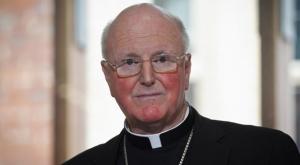This is the first of three blogs on the Evangelical – Progressive Divide.
For there to exist a reasonable conversation between evangelicals and progressives we must first cut past all of the political posturing that is part of the current progressive versus evangelical standoff in United Methodism and other Christian denominations. Right now factions are fighting for power within institutions. Such fights draw in the worst kind of people and draw out the worst in the rest of us. But those negative qualities do not define the evangelical agenda.
Nor should we confuse the evangelical agenda with the way in which politicians seek to use the word evangelical to assemble coalitions of voters. All religious movements are subject to abuse and manipulation. It doesn’t define them.
To understand evangelicalism I think we need to recognize that it is conservative in the truest sense of the term. It seeks to conserve a choice, a possibility, an alternative to the understanding and experience of reality offered in modernity and postmodernity. This means that it seeks to offer the possibility of genuine conversion, of stepping from one way of understanding and experience of reality into another.
Specifically it offers the possibility of stepping into a world in which God has authority over and gives assurance to our human decision-making. It offers the possibility of encountering that authority in concrete form in the Christian scripture and tradition. And this scripture describes and allows the possibility of stepping into a world that is ordered by God. Converted to this world humans may order their lives in a way that fits perfectly with their Creator’s plan and is thus in their self interest.
Put negatively evangelicalism offers an alternative to what it understands as the hubris and anxiety that comes from humans trying to understand and order their world without God. Evangelicalism seeks to free us from fruitlessly trying to take on authority beyond our human capacity.
And when humans do not accept God’s plan and God’s order evangelicals interpret this as Sin; the stubborn refusal to submit to what our Creator knows is best for us.
Going further, to understand evangelicalism we must understand how attractive its vision of reality really is. Its description of human experience is, for a large number of people, commonsensical. The human social order rooted in the heterosexual family that it describes is the order that 90% of people find comfortable. The idea of both an eternal soul and a God who cares for the soul fits with human conscious self-perception across many cultures. And the larger symbol system is both familiar to Americans via socialization and draws them into familiar and meaningful rituals.
If there is a serious problem with evangelicalism and the human experience it is the conflict between a scriptural description of the natural order and that of the commonsense scientific knowledge most Americans possess. But even this has been overcome as the majority of evangelicals have come to grips with the fact that the natural order is in fact exposed better by science then read out of scripture. By limiting the authority of scripture to describe the realm of human-divine and human social relations, while affirming the commonsense observation of the natural order without insisting on describing it, contemporary evangelicals have largely gotten past the old controversies about evolution, although they have not managed to resolve among themselves disputes about birth control, abortion, and homosexuality.
Yet here we also find the problem with evangelicalism in relation to the contemporary human experience of the world. Because the distinctions between natural and social and even metaphysical are already obliterated by modernity. In a contemporary understanding the human social order is simply a stage in the evolution of organisms running from herds to packs to groups of primates to modern humans. Indeed, for moderns the only thing that distinguishes the human social order is our capacity to consciously reflect in it and change it. We, not God, are what make our social relationships distinctive. Similarly contemporary thought is dominated by an immanentism that pulls all metaphysics into the realm of physics and in particular cosmological theories articulated in almost purely mathematical language.
But even as I write the words above I think you can see just how evangelicalism offers a choice. It is a choice to resist the pull into pure immanentism of modernity and post-modernity, and with them an understanding of the human person as a biological machine striving, mostly ineffectively, to grasp reality. Instead it offers a world known by God and therefore knowable by God’s human servants. They only need to humbly bring to bear the capacities given them as they are made in the image of God. And the first and foremost of these is the capacity to hear God’s Word if they surrender their self-sufficiency, put their faith in Jesus Christ, and accept the leading of God’s spirit.
Evangelicalism offers what W.H. Auden, himself a convert into Christianity, called “A Certain World.” A particular world in which one finds at long last certainty.











